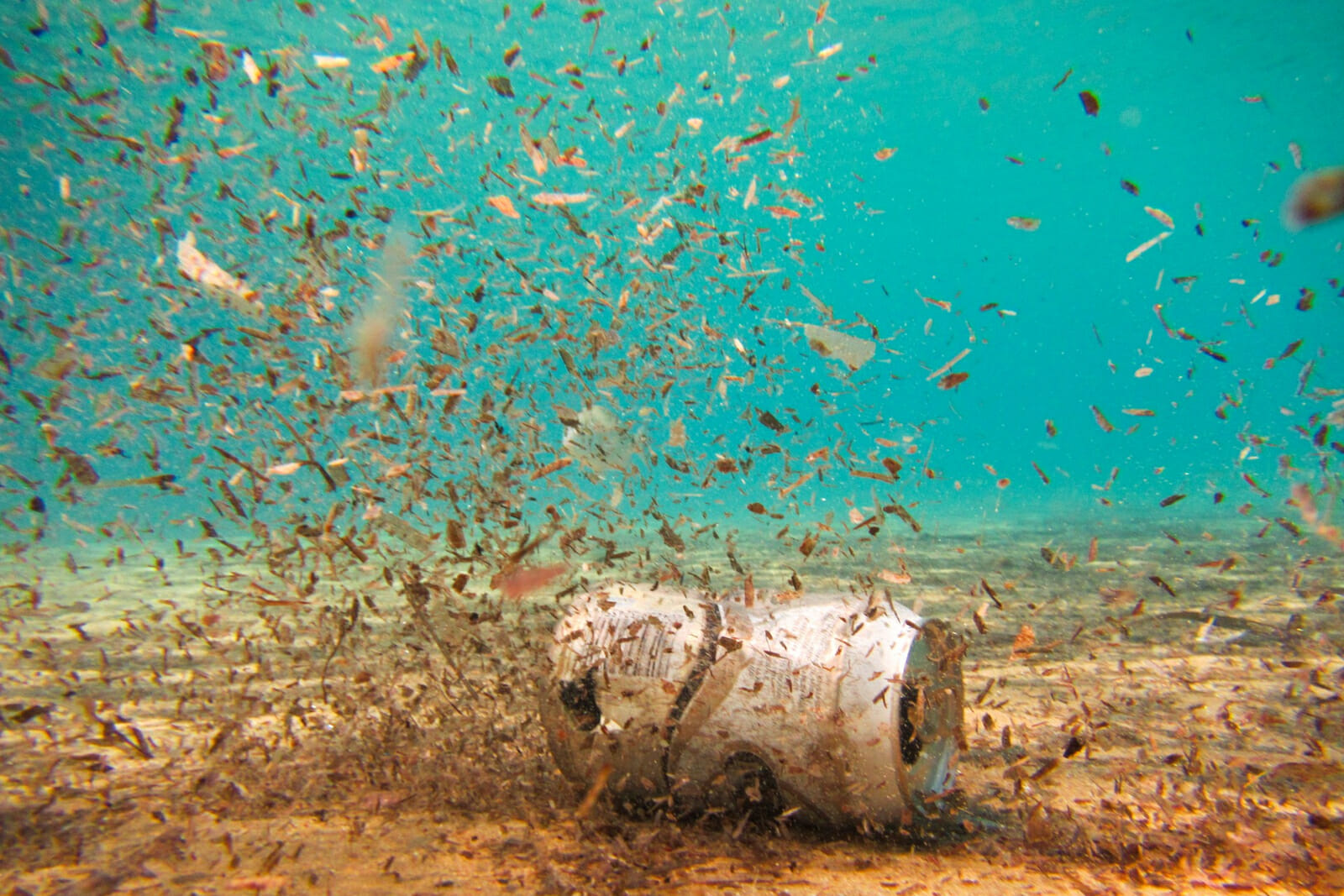
The Increasingly Pertinent Issue of Marine Litter in South Asia
Marine littler is a unique form of oceanic pollution which has an adverse effect on the ocean’s ecosystem. It is a pervasive problem along the shorelines, estuaries, coastal waters, and the oceans throughout the world. Unregulated dumping in the ocean is the primary factor for the accumulation of litter in the oceans. The South Asian Seas (SAS), which is identified as sea bordering India, Pakistan, Bangladesh, Maldives, and Sri Lanka and comprises the northern part of the Indian Ocean, along with parts of the Bay of Bengal and the Arabian Sea, has accumulated massive waste, causing devastation in the region.
The SAS region consists of one-fifth of the global population. The countries in this region are plagued by high population, low income, and low development with a high dependence on natural resources. The region has been developing at a rapid pace which has led to a substantial contribution by each of these countries to the unique pollution problems referred to as marine litter. Marine litter in the SAS region is primarily in the form of sewage, agricultural chemicals, sediment, oil hydrocarbons, and solid waste. The pollution caused by SAS is a direct result of poor waste management by the countries involved. It is estimated that 80 percent of marine debris can be traced to land-based activities. Of this debris, around 70 percent is believed to be entering the ocean seabed, 15 percent on beaches and 15 percent remains floating on the surface.
In order to combat marine litter, in 1995 marine litter was identified as one of the nine source categories of the Global Programme of Action for the Protection of the Marine Environment from Land-based Activities (UNEP, 1995.) Not until 2004 in Resolution 59/24 in 2004 on Oceans and the Law of the Sea, was marine litter recommended in the discussions of the United Nations Consultative Process on the Law of the Sea (UNICPOLOS) as well as in the 2004 UN Secretary-General’s Report. Additionally, in Resolution 59/25 of the UN General Assembly on 17 November 2004 on Oceans and the Law of the Sea – Sustainable Fisheries, were the adverse effects of discarded fishing material addressed.
Due to the serious threat that marine litter poses to fishery resources, habitat, and wildlife as well as human health and safety, the UNEP/Regional Seas program has been developing activities relevant to the marine litter issue in consultation and in co-operation with many UN agencies, such as the Intergovernmental Oceanographic Commission (IOC) of UNESCO, International Maritime Organization (IMO), the Secretariat of the Basel Convention, the Mediterranean Action Plan and the Food and Agricultural Organisation of the United Nations (FAO). To facilitate and form programs to address the issues of marine litter; however, in the SAS region the issue of marine litter management is not taken as a priority by any of the nations.
At the moment, in the SAS region there are no legal frameworks or policies that address the issue of marine litter, therefore, there are no specific national or regional projects aimed at the issue of marine litter. Furthermore, within the SAS region, there lacks data regarding the open-ocean floating and seafloor marine debris. Currently, only India, Sri Lanka and the Maldives have some data that is of use, where the other countries have scarce information. Secondly, the current marine litter is unmonitored and unmanaged. Any and all marine litter activities are limited to periodic beach-clean up and community clean up exercises, which is insufficient to deal with the growing problem of marine litter.
Without a concrete policy framework backed by proper management of waste, marine pollution and litter the issue cannot be combated. Recognizing the problem at hand, the South Asia Co-operative Environment Programme, under its Waste Management program has decided to prepare the ‘Framework for Marine Litter Management in South Asia,’ which will be formally endorsed in the 4th Inter-Ministerial Meeting of the South Asian Seas. With the formation of the framework hopefully the nations will take steps towards tackling the increasingly disastrous issue of marine pollution.


